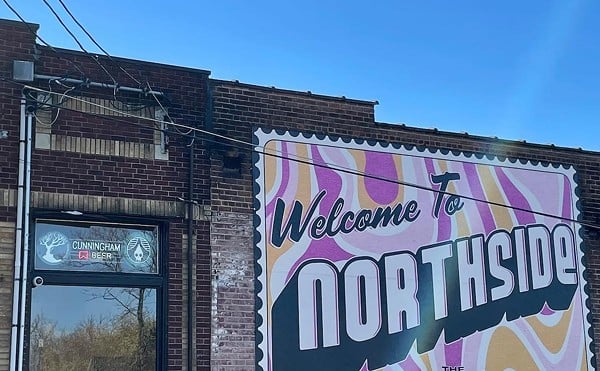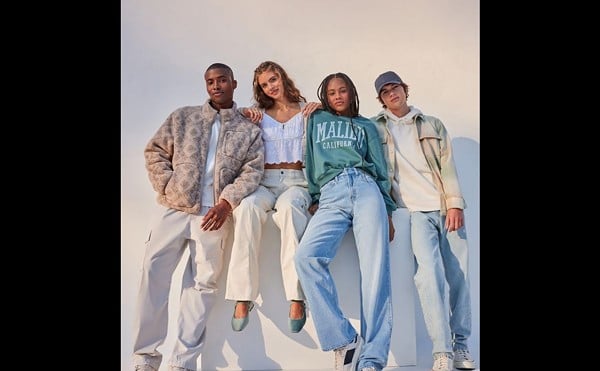|
When I was in junior high school, I was obsessed with music. I still love it more than most anything, but — like "love" — back then it felt like life or death, the be-all, end-all of my existence.
I vividly remember a moment on the school bus, listening to my cheap, huge (think 42 iPods glued together) cassette player and grooving along to The English Beat's Just Can't Stop It. When I discovered The Beat (a second-wave Ska band at that time), I recall thinking to myself that it was impossible for anyone to hear this music and not completely be addicted. How could this group not be everyone's favorite band?
Flash forward about five years and I am in a band's "practice space" (i.e., someone's parents' basement), hearing the music of the Red Hot Chili Peppers for the first time. I was learning a couple of Peppers' songs with the first band I was ever in. The other fellas were already in worship-mode when it came to the Chilis. This was around the time of the group's second album, Freaky Styley, and we were playing "Catholic School Girls Rule" (a ditty inspired by L.A. Punk acts like Fear) and "Police Helicopter," a 90-second burst of spastic, angular Funk from the group's 1984 self-titled debut.
I quickly bought all of the band's albums and became instantly hooked.
I had a new favorite band. Again, who wouldn't love this band, if only they could find and hear them.
To me, a young, open-minded Punk and "College Rock" fan, the Peppers were doing something exciting and free. Their lunkhead sense of humor helped. As did their infusion of Rap, in which I was also becomingly increasingly infatuated. I got to see some earth-moving shows from the band, one of the best live entities in music at the time, from their late-arrival for a show at Bogart's, with not-yet-dead guitarist Hillel Slovak (where openers Faith No More — featuring early singer Chuck Mosely — had to stall and play everything they knew because the Peppers' van "broke down on the highway") to an early show with a teenage John Frusciante on guitar at what looked like the cafeteria at the University of Kentucky. Those shows had so much energy, it felt like the stage would collapse. There was a sense of danger and, especially, excitement. (They did the "socks on cocks" bit at Bogart's for their encore and nervously eyed the sides of the stage, perhaps having been told of Cincy's zero-tolerance for naughtiness.)
By '91, the Peppers were breaking through to the mainstream, thanks to the ballad "Under the Bridge." It was the beginning of the end. At least when it came to my love for them. I saw the band several times when they were touring Blood Sugar Sex Magic (a great album, overall) and it seemed like they had been anointed the godfathers of the AltRock revolution. In Columbus and Cincinnati, I saw them headline over The Smashing Pumpikns and newbies Pearl Jam. The shows were still incinerating — during the Pumpkins set at Riverfront Coliseum, the audience was moved to tear out the seats on the floor, forcing festival seating and making some necessary elbow room for the Peppers fans. The only down part of the show was Frusciante, who seemed bored and dazed.
Frusciante left the band not long after and the Chilis went on to headline Lollapalooza with a fill-in guitarist. The live show was losing its edge and the temp on guitar seemed to suck away the feeling that this was a "gang" of merry-prankster brothers. The band seemed to be fulfilling contracts, getting through so they could get paid.
By 1999's Californication, the band completely lost me. I bought the cassette in Chicago to listen to on the drive back and probably got half way through before I hit the "Stop" button. Forever. All I could picture was a business meeting between the band members (including Frusciante, who had rejoined after kicking his drug habit) as they came to the mid-life-crisis realization that the only way to secure their long-term payday was to keep rewriting "Under the Bridge."
The four musically explorative madmen from the City of Angels became a corporation. Once the sound of Jimi Hendrix, Black Flag, Funkadelic and NWA all rolled into one, the Peppers were now four funky James Taylors, writing innocuous Pop music. The business plan has worked. The Peppers are one of the biggest bands in the world.
I always wonder what happens to an artist when they turn from something vital and innovative to something bland and outrageously uninteresting. There's the "maturity" factor. Perhaps the Peppers matured to the point where they became interested in making only boring fluff. There's the "lazy" factor. Why be inventive when you can just keep making the same songs over and over? And, of course, there's the "money" factor. If the Peppers were to make something as explosive and whacky as Uplift Mofo Party Plan, would they sell enough to maintain those fancy mansions?
I still have a small soft spot for the Chilis. I still love Frusciante, one of the best guitarists of his generation who manages to keep making more interesting music on the side. With the exception of Kiedis (whose singing voice is something akin to the sound of a moose caught in a bear trap), the other musicians are also top notch.
But the stale songwriting has tarnished their legend. I didn't grow out of the Chili Peppers; they grew away from me. Early on, they taught me that "genres" meant nothing; I was inspired to delve into some of the band's influences, everything from Sly Stone to Eric Dolphy; and they extended the old Punk Rock message that music was freeing and that anyone can do it if they have the soul and drive to create.
The lessons I've learned from the Chilis of today? People change. Money changes everything. And nothing lasts forever.
THE RED HOT CHILI PEPPERS perform at the US Bank Arena Saturday.





